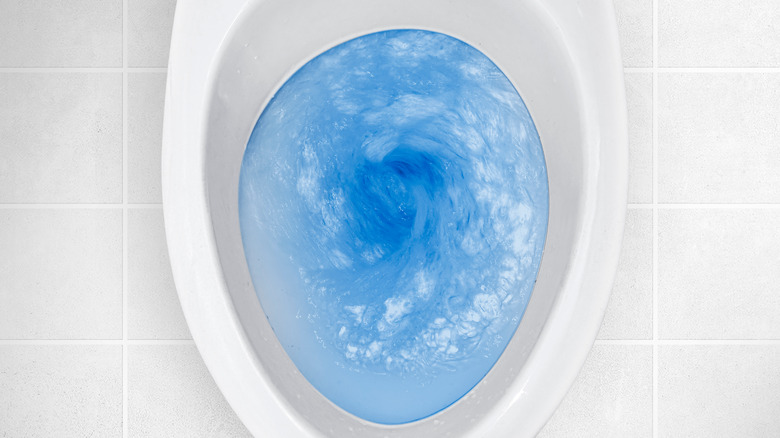What Does It Mean When Your Urine Is Black?
Urination is a natural and critical bodily process. Urine is a fluid produced by the kidney's filtration system that separates the waste and water from the blood, according to MedlinePlus. This fluid is then stored in the bladder until you need to pee.
The natural color of the urine is often pale yellow to deep amber, per Mayo Clinic. This color comes from a natural pigment present in the urine called urochrome. The lighter and darker shades often depend on how diluted the urine is. If you're well-hydrated, the urine will be pale; if you're dehydrated, the color would be a darker shade.
At times, after consuming particular drinks or foods, you may notice a change in the pee color, according to Mayo Clinic. For example, eating blackberries or beets might cause a reddish tinge in the pee. Similarly, if you take medications, the urine may turn green or red because of internal reactions.
But what if your urine turns abnormally dark, bordering on black or gray? This may be an alarming sign.
What does black urine indicate?
Dark urine is generally a sign of dehydration, explains Healthline. UC San Diego Health points out that taking certain medications and consuming a lot of rhubarb, fava beans, or aloe can also darken urine. However, dark urine may also indicate that your body has excessive, and possibly dangerous, waste material circulating inside.
If the urine color turns black, it could be a sign of a rare disease called Alkaptonuria, according to the U.K. National Health Service (NHS). This genetic condition can inhibit the body's ability to naturally break down two amino acids called tyrosine and phenylalanine. This leads to an excess of a chemical in the pee called homogentisic acid, which gives the urine a dark color.
Affected babies' nappies might appear dark after being exposed to air. If early symptoms are overlooked, the condition might not become apparent again until the 20s or 30s. During adulthood, the condition may lead to ochronosis which turns bones, tissues, and cartilages black because of the accumulation of homogentisic acid in the body over the years, explains the NHS. It may cause discoloration or disfiguration in the ears and the white region of the eyes. The condition may also contribute to joint problems, breathing difficulties, heart disease, and kidney or prostate problems.
Other concerning causes of black urine include melanoma and copper or phenol poisoning. With all of this in mind, UC San Diego Health recommends seeing your doctor if your urine turns black.


